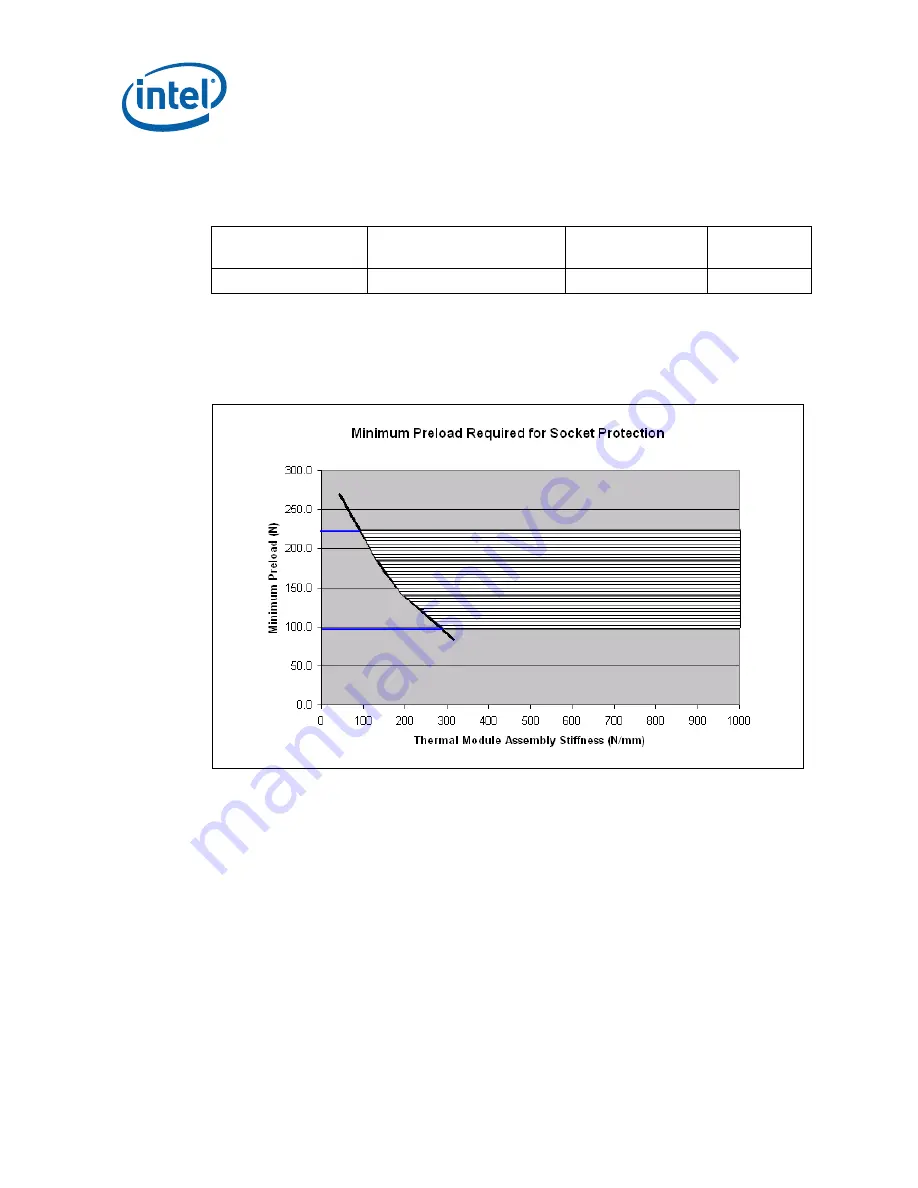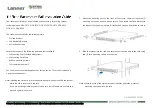
Balanced Technology Extended (BTX) Thermal/Mechanical Design Information
52
Thermal and Mechanical Design Guidelines
5-4, then the Thermal Module should be re-designed to have a preload that lies
within the range given in Table
5-4, allowing for preload tolerances.
Table
5-4. Processor Preload Limits
Parameter Minimum
Required Maximum
Allowed
Notes
Processor Preload
98 N [22 lbf]
222 N [50 lbf]
1
NOTES:
1.
These values represent upper and lower bounds for the processor preload. The nominal
preload design point for the Thermal Module is based on a combination of requirements
of the TIM, ease of assembly and the Thermal Module effective stiffness.
Figure
5-6. Minimum Required Processor Preload to Thermal Module Assembly Stiffness
NOTES:
1.
The shaded region shown is the acceptable domain for Thermal Module assembly
effective stiffness and processor preload combinations. The Thermal Module design
should have a design preload and stiffness that lies within this region. The design
tolerance for the preload and TMA stiffness should also reside within this boundary.
Note that the lower and upper horizontal boundaries represent the preload limits
provided in Table
5-4. The equation for the left hand boundary is described in note 2.
2.
The equation for this section of the preload-Thermal Module stiffness boundary is given
by the following relationship: Min Preload = 1.38E-3*k^2 – 1. 320.24753 for
k < 300 N/mm where k is the Thermal Module assembly effective stiffness. Please note
that this equation is only valid in the stiffness domain of 93N/mm < k < 282N/mm. This
equation would not apply, for example, for TMA stiffness less than 93N/mm,
3.
The target stiffness for the 65W Type II TMA reference design is 484 N/mm
(2764 lb / in).
Note:
These preload and stiffness recommendations are specific to the TMA mounting
scheme that meets the BTX Interface Specification and Support Retention Mechanism
(SRM) Design Guide. For TMA mounting schemes that use only the motherboard
Summary of Contents for Celeron Dual-Core E1000 Series
Page 10: ...10 Thermal and Mechanical Design Guidelines...
Page 26: ...Processor Thermal Mechanical Information 26 Thermal and Mechanical Design Guidelines...
Page 68: ...ATX Thermal Mechanical Design Information 68 Thermal and Mechanical Design Guidelines...
Page 86: ...Heatsink Clip Load Metrology 86 Thermal and Mechanical Design Guidelines...
Page 88: ...Thermal Interface Management 88 Thermal and Mechanical Design Guidelines...
Page 120: ...Legacy Fan Speed Control 120 Thermal and Mechanical Design Guidelines...
Page 126: ...Fan Performance for Reference Design 126 Thermal and Mechanical Design Guidelines...
Page 127: ...Fan Performance for Reference Design Thermal and Mechanical Design Guidelines 127...
















































